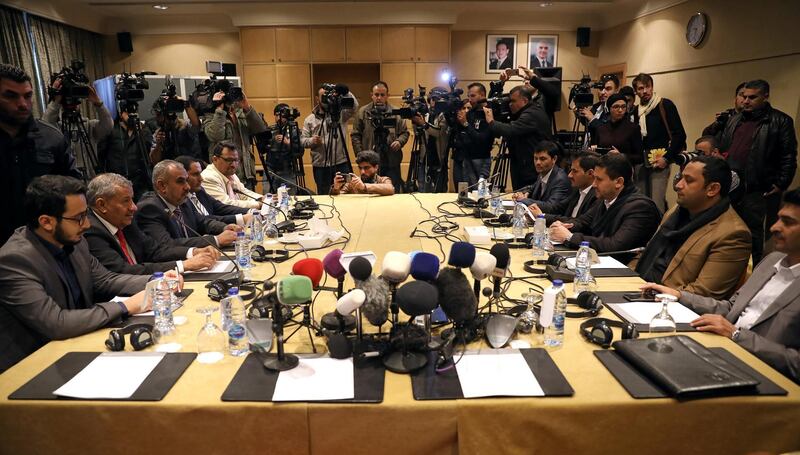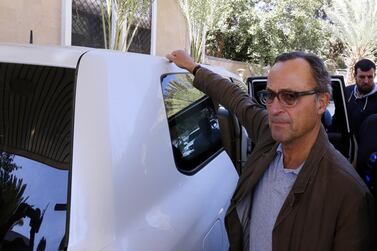Representatives of Yemen’s warring sides met in Jordan on Tuesday in an attempt to finalise a prisoner exchange deal geared towards ending the devastating war.
The arrangement, brokered through UN-led peace talks in December, is seen as a crucial confidence building measure to help Yemen’s internationally recognised government and Houthi rebels negotiate a political settlement to end the three-year conflict.
"We went in to the talks today hoping to negotiate the Houthis' feedback to our request to release the named detainees, especially on the 232 whose fates remain unknown due to the Houthis' refusal to co-operate," a Yemeni official on the prisoner exchange committee told The National.
Last month, talks were held for two days in Amman during which the two sides submitted lists of prisoners they wanted released to UN mediators.
"The government will not accept any setbacks or reservations from the Houthis, we will only agree to the deal once the rebels release all of the names that we have asked for," the Yemeni official said.
The International Committee of the Red Cross (ICRC) supervised the implementation of the deal.
United Nations envoy to Yemen Martin Griffiths and ICRC President Peter Maurer attended the first day of the talks.
Mr Maurer said that the meeting comes at a critical moment for peace in the war-torn country.
"I’ve come to the talks in Amman to encourage parties to implement the agreement. The promise of a release gives hope to thousands of families whose loved ones have not returned from the battlefield," Mr Maurer said on Twitter.
The agreement is a first step towards building a better #Yemen and alleviating the despair and suffering of its people.
— Peter Maurer (@PMaurerICRC) February 5, 2019
Acting as a neutral intermediary, the @ICRC is doing our utmost to support parties on implementation and is offering technical and logistical expertise.
ICRC's director of operations Dominik Stillhart told reporters on Monday evening that the agreement is "hanging in the balance", with trust among the parties "insufficient".
Each side has presented a list of up to 8,000 detainees to be freed, but many names cannot be accounted for, Mr Stillhart said.
"The prisoner swap realistically would involve a significantly lower number," he said.
Mr Stillhart said there is disappointment on both sides.
"What we now see on both sides [is that] they don't have them all because a lot of them, they probably died during the conflict," he said.
Mr Stillhart said the ICRC was able to facilitate an exchange last week of a Saudi prisoner and seven Houthis held by the Saudis. He said he, hoped the parties would build on this "positive momentum" in their talks this week.
Once agreement is reached on the prisoner lists, more than 15,000 detainees from each side could be released as soon as possible.
“The international community has been determined to have all conditions met for the deal in order to push for a breakthrough in the crisis,” a Yemeni official said.
The development comes as retired Danish general Michael Lollesgaard arrived on Tuesday in Sanaa to replace Patrick Cammaert, the Dutch general who has been heading a UN monitoring mission in the port city of Hodeidah.
Mr Cammaert's replacement comes after reports indicated that his ties with the rebels were allegedly strained.
It is still unclear when Mr Lollesgaard will begin his work in Hodeidah. He will oversee a team of 75 observers to monitor a delicate ceasefire deal that was also brokered through UN peace talks in Sweden.
Hodeidah is a main entry point for much of Yemen's imported goods and humanitarian aid, considered a lifeline to million of civilians facing starvation.
Mr Lollesgaard's appointment was endorsed at the end of January by the UN Security Council.
Mr Lollesgaard commanded the UN peacekeeping force in Mali from 2015 to 2016, and served as Denmark's military representative to Nato and the European Union in 2017.







